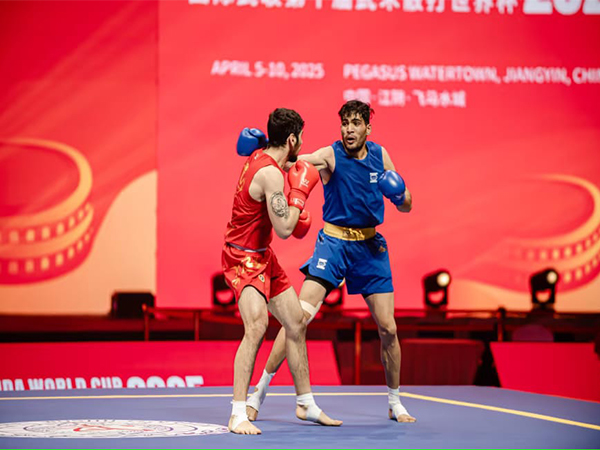India, Indonesia think tanks hold a discussion on "G20 and Global Dynamics"
Nov 11, 2022

Jakarta [Indonesia], November 11 : India and Indonesia think tanks - The Centre for Global Affairs and Public Policy (CGAPP) and Institute for Development of Economics and Finance (INDEF) respectively, held a discussion on "G20 and Global Dynamics" and recognized the impact of close bilateral cooperation.
Indonesia is all set to host the G20 summit at Bali from November 15-17. What is equally significant is that India is taking over the group's presidency in December.
This has provided a unique opportunity for India and Indonesia to deepen their bilateral engagement as a host of Track II events are being held with stakeholders from both nations.
CGAPP, an Indian think tank and the INDEF, an independent research organisation based in Jakarta held a round table discussion on "G20 and Global Dynamics: From Indonesia's presidency to India's" to discuss the opportunities and potential of this transition.
The conference in hybrid format saw the participation of experts in various fields, researchers and government representatives. Speakers included Dr Ferry Irawan, Assistant Deputy for the Monetary and external sector, Dr Tauhid Ahmed, Executive Director, INDEF, Anindya Sengupta, Director, CGAPP and Dr Berly Martawadaya, Director of Research INDEF.
They agreed that the G-20 needs to respond to supply chain disruption, price moderation, and finding resources for climate change mitigation with renewed urgency. They also expressed hope that India will continue to champion the cause of the global south as the G-20 president.
Dr Tauhid Ahmed pointed out the risk of economic spillovers with economies opening up more. He said that Indonesia had invited other nations to collaborate through its G20. He raised issues of inflation, sustainable financing, energy transition and food security, and mentioned the contributions of Indonesia's G20 presidency through B20 and other stakeholders.
Dr Ferry Irawan, shared concrete deliverables, in the form of projects, programs or initiatives in its three priority areas - Global Health Architecture, Digital Transformation, and Energy Transition - as well as other areas, that have been undertaken during Indonesia's presidency.
He also noted that the impact of COVID-19 on rising debt, supply chain disruption, rising inflation and energy prices, and climate change, highlights the importance of coordinating policy responses among developing nations.
CGAPP highlighted that not only was India going to continue with Indonesia's priority areas in G-20, but also add more depth to them with its own priorities. India's agenda for its G20 presidency includes digital public infrastructure, and tech-led development especially in agriculture, climate change and other areas.
Circular economy and energy transition have also been added along with a twin focus on innovation and behavioural changes as envisioned in LiFE framework to change lifestyles and build more sustainable societies.
CGAPP Director, Anindya Sengupta noted that the continuity of two large developing countries, holding the G20 presidency in succession, means that nations of the Global South can have their own voice in international affairs.
Further, India and Indonesia can collectively use this opportunity to make G20 a forum for global problems and simultaneously deepen cooperation, particularly in trade and commerce.
Sengupta pointed out the shared problems of inflation, energy prices in the face of COVID-19 and geopolitical developments such as the Russia - Ukraine war.
Director of Research, Dr Berly Martawadaya emphasized the cultural links between India and Indonesia and historic trade ties. He said this provides a foundation for the two nations to deepen bilateral engagement.
International Affairs Expert Dr Moch Faisal Karim, speaking at the conference virtually, added that security cooperation needs to be an essential part of the relationship.
The round table discussion provided an instance of Track II engagement between India and Indonesia, moving beyond the traditional ties of the two nations, which are often restricted to multilateral fora.
The G20 group itself has members of diverse groups such as G7 developed nations, BRICS, Gulf Cooperation Council, ASEAN etc. The similarities between India and Indonesia mean that there is potential for scaling up ties between them and closer bilateral cooperation is likely to bring the voice of developing countries to G20 itself.



















